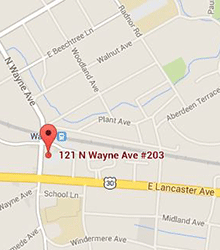One-size-fits-all. It’s a practical and possibly economical way to view your options on occasion. But, if you’re considering a dental implant you should know the one-size-fits-all approach isn’t a viable option. Why? Your tooth loss is unique. And there are more complexities to be considered.
First things first.
It’s essential to get a thorough diagnosis. If you’ve lost a tooth, generally, you’re a good candidate for dental implants.
Tooth loss could be where the similarities end though. Your overall health, including your current health conditions should be considered.
-
Are you diabetic?
-
Have you been treated for cancer with radiation?
-
Are you a smoker?
-
Have you been diagnosed with periodontal (gum) disease?
These are vital questions to discuss with us. The more knowledge we have about your past, current, and future health history – the better – if you’re considering an implant for your missing tooth/teeth.
There’s a place for everything…
Your dental implant requires proper placement to fully restore the function of your missing tooth. We’re equipped to assess your mouth and jaw bone structure before making our treatment recommendation.
As your doctor, I will review various oral health records to determine your treatment. I’ll review specialized x-rays, study models of your mouth, and view your bite.
Detailed assessment helps me ensure that your dental implant is placed in proper position within the available bone. You will experience better tooth replacement and function as result of such a thorough treatment diagnosis.
…And everything in its place…
There’s another consideration regarding dental implant placement. And that’s the type of implant you require.
Single tooth replacement
Perhaps your tooth loss requires a single dental implant. The implant is placed into your jawbone and following a healing period an abutment is attached to the implant.
The abutment serves as a connection of sorts to the tooth portion known as a crown. The crown is what actually replaces your visible tooth by anchoring to the abutment and the implant that forms a new tooth root.
Fixed multiple tooth replacement
It might be necessary to replace multiple teeth in a specific location of your mouth. The same process occurs as with a single tooth replacement but with an exception.
This treatment involves the placement of multiple implants. These are attached to custom-made crowns or to dental bridgework that are produced to match your existing teeth.
The customized implant supported bridge replaces multiple teeth. Your healthy teeth remain undisturbed and bone loss is stopped.
Removable implant supported tooth replacement
On occasion, all of the teeth in either the upper or lower arch of your mouth might need replacement. Two or more implants will be placed to form a secure foundation for your replacement teeth.
Removable dentures are often used when you have extensive tooth, bone, and gum tissue loss. The new denture is fixed to the implants within your available bone.
Your tooth loss is unique to you. It’s vital that your dental implant treatment be made-to-fit.
Question: Which implant option interests you? Have you consulted with an implant specialist before? Comment.

